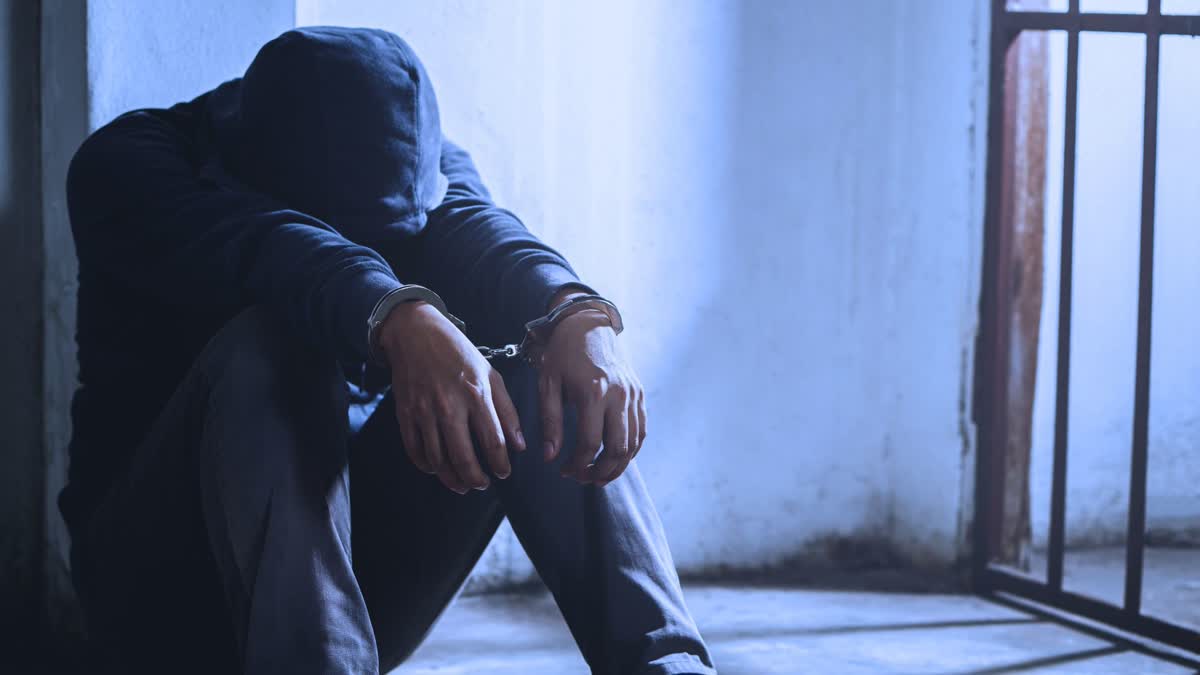New Delhi: At 16, he fell in love with a girl. They both eloped and claimed to have got married in a temple in presence of the boy's mother and maternal uncle, and started living as husband and wife. However, the love has gone sour now. The boy has been charged with rape, kidnapping, and under various section of Prevention of Children from Sexual Offences (POCSO) Act.
He was incarcerated for 489 days as an adult and later for more than 242 days in a juvenile home. On Friday, the Supreme Court ended his nearly two-year ordeal and granted bail subject to appropriate conditions being imposed by the trial court. Under the Juvenile Justice Act, any accused aged between 16-18 years will be tried as an adult when he or she commits a heinous offence.
The petitioner’s family filed an application before the sessions court contending that he should be sent to a child observation home as there is scope of reformation, which was finally concurred with by the court which shifted him to a juvenile home more than a year later. The young boy's stay in juvenile home for nearly 8 months. The family's attempt to get the boy released by the Juvenile Justice board and a High Court did not fructify.
The petitioner moved the apex court, through advocate Namit Saxena, challenging the Rajasthan High Court order, which dismissed the criminal revision petition of the petitioner in April this year. After hearing the petition, a bench of the apex court granted him bail on Friday.
The bench comprising justices A. S. Bopanna and Sudhanshu Dhulia said: “We direct that the petitioner be released on bail subject to appropriate conditions being imposed by the trial court. For the said purpose, the petitioner shall be produced before the trial court forthwith and appropriate release order be passed.”
The boy has claimed that on April 17, 2021, the victim voluntarily went with him, and an FIR was registered in the case on April 18, 2021, by the girl's family. On April 22, 2021, the petitioner and the alleged victim went to the office of Superintendent of Police to lodge a complaint about the threats from the alleged victim’s family. The police recorded the statement of the alleged victim under section 161 CrPC on April 22, where she claimed to have gotten married with the petitioner, and wants to live with him.
On April 23, the statement of the victim under 164 CrPC was recorded before the civil judge and judicial magistrate, Kota. Then, the victim had clearly said that she voluntarily ran from her house and that when her mother-in-law tried to persuade her to go back to her family, she didn’t listen to her and went to Kota with the petitioner and got married there.
On April 29, the police arrested the petitioner and a charge sheet was filed on July 12, 2021. 85 days from the date on which the case was registered. The Juvenile Justice Board twice rejected petitioner’s bail application and in January, 2023, special judge POCSO cases, also dismissed the appeal against the dismissal of second bail application by the Juvenile Justice Board.
Saxena argued before the top court that the high court had, without proper appreciation of the facts and circumstances of the case and the evidence available on record, dismissed his client’s criminal revision petition. He submitted that the section 496-A of Code of Criminal Procedure, provides for the release of an undertrial prisoner if he/she has undergone detention for a period extending up to one-half of the maximum period of imprisonment specified for that offence under law.
Saxena contended that in the Juvenile Justice (Care and Protection of Children) Act, 2015, maximum imprisonment to a juvenile is three years. The petitioner was tried as an adult till August 30, 2022, and after the order of the sessions court, the case was sent to the Juvenile Justice Board and he was tried as a child in conflict with law and has been confined in the child observation home, Kota since last 242 days.
The apex court, in its order, said: “Though contentions with regard to the nature of the order passed by the High Court is referred to, at this stage we see no need to go into all aspects of the matter, in as much as, at the outset we note that the petitioner has been in custody for more than two years. In that view of the matter, we are of the opinion, the prayer made in the petition is liable to be granted.”



